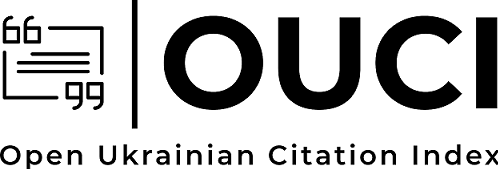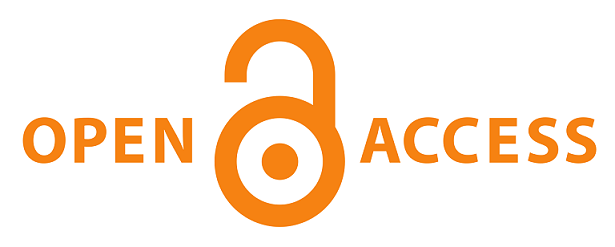ACTIVITY OF ALL-UKRAINIAN COMMITTEE OF ASSISTANCE TO SCIENTISTS IN KYIV IN 1920s: SOCIAL CONTROL
DOI:
https://doi.org/10.28925/2524-0754.2017.1.8894Keywords:
All-Ukrainian Committee of Assistance to Scientists, intellectuals, social control, accommodation, food ration for academics, sanitation, financial aidAbstract
The article studies the activity of the All-Ukrainian Committee of Assistance to Scientists in the hardest period of 1920–1925. During the Holodomor of 1921–1923 the Committee supported scientists, higher education establishments’ professors as well as the artists in the biggest scientific centre — Kyiv. Financial conditions of scientists and artists were critical. This situation was used by the regime to control intellectuals. It transferred from leading social force, which was determining a direction and establishing of the Ukrainian state and was developing the culture, to ideologically and financially marginal social group. The subject matter of this article is to study the forms and methods of the All-Ukrainian Committee’s support to Kyiv intellectuals in the first half of 1920s. The archive of the All-Ukrainian Committee of Assistance to Scientists provides us with the opportunity to reveal insights on this issue. Mechanisms of the use of the following support to social control of intellectuals by the Soviets are analysed. In the condition of whole-food and essential tools deficiency, which was in the USSR and, in particular, in Kyiv in 1921–1923, scientists were sufficiently unprotected. It provided the state with a possibility to use budget financing / underfunding to influence intellectuals loyalty (in particular, scientists and artists). The part of this support as well as leverage over the intellectuals means accommodation, sanitation, financial aid, food aid (food ration for academics), support to families of the dead.
Downloads
References
Bilokin S. Kyivska vchena korporatsiia (20–50-ti rr. XX st.) / Serhii Bilokin // Ukraina XX st.: kultura, ideolohiia, polityka. — 2008. — Vyp. 14. — S. 288–305.
Didenko K.V. Diialnist vseukrainskoho komitetu spryiannia vchenym shchodo sotsialnoho zabezpechennia naukovtsiv USRR u 20-x rr. XX st. / K.V. Didenko // Naukovi pratsi istorychnoho fakultetu Zaporizkoho natsionalnoho universytetu. — 2014. — Vyp. 40. — S. 125–128.
Didenko K.V. Diialnist Vseukrainskoho komitetu spryiannia vchenym z vidkryttia Budynkiv vchenykh v Ukraini (1920-i rr.) / K.V. Didenko // Hurzhyivski istorychni chytannia. — 2014. — Vyp. 7. — S. 308–310.
Koliastruk O. Inteligentsiia USRR u 1920-ti roky: povsiakdenne zhyttia / O. Koliastruk. — X. : Rarytety Ukrainy, 2010. — 386 s.
Koliastruk O.A. Diialnist Vseukrainskoho komitetu spryiannia vchenym u 20-ti rr. XX st. / O.A. Koliastruk // Inteligentsiia i vlada. — 2008. — Vyp. 13. — S. 97–111.
Tsentralnyi derzhavnyi arkhiv vyshchykh orhaniv vlady ta upravlinnia Ukrainy (dali — TsDAVO). — F. 331. — Op. 1. — Spr. 1. Protokoly zasedanii komissii po uluchsheniiu byta uchenykh pri VUKSU i materialy k nim. 1 dekabria 1921 g. — 26 yanvaria 1923 g. — 118 ark.
TsDAVO. — F. 331. — Op. 1. — Spr. 11. Dokumenty ob obespechenii prodovolstvennymi paikami i po lichnomu sostavu nauchnykh rabotnikov USSR (protokoly, akty, vedomosty, ankety, avtobiografii, spiski, zaiavleniia, prepiska). 13 yanvaria — 31 dekabria 1921 g. — 317 ark.
TsDAVO. — F. 331. — Op. 1. — Spr. 14. Dokumenty ob uluchshenii bytovykh uslovii nauchnykh rabotnikov g. Kieva (protokoly, stati, svedeniia, prepiska). 14 dekabria 1921 g. — 20 marta 1922 g. — 232 ark.
TsDAVO. — F. 331. — Op. 1. — Spr. 15. Dokumenty o neobkhodimosti uluchsheniia materialnogo polozhenniia prepodavatelskogo sostava g. Kharkova (tsirkuliar, doklady, svedeniia, perepiska). 14 sentiabria 1921 g. — 31 dekabria 1922 g. — 69 ark.
TsDAVO. — F. 331. — Op. 1. — Spr. 68. Otchiet o rabote VUKSU za 1923 g. — 30 ark.
CzDAVO. — F. 331. — Op. 1. — Spr. 187. Otchiet o rabote VUKSU za oktiabr 1925 — fevral 1927 g. — 34 ark.
Published
How to Cite
Issue
Section
License
Copyright (c) 2017 Kyiv Historical Studies

This work is licensed under a Creative Commons Attribution-NonCommercial-ShareAlike 4.0 International License.
Authors who publish in this journal retain the right of authorship of the work and give to the journal right of first publication of this work under the conditions of Creative Commons: Attribution-NonCommercial-ShareAlike 4.0 International (CC BY-NC-SA 4.0), which allows others freely distribute the work published with reference to the authors of the original work and the first publication of this magazine.














